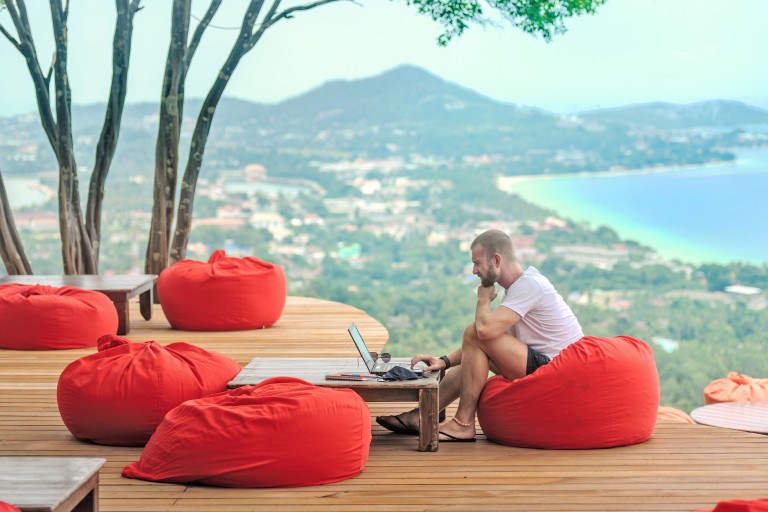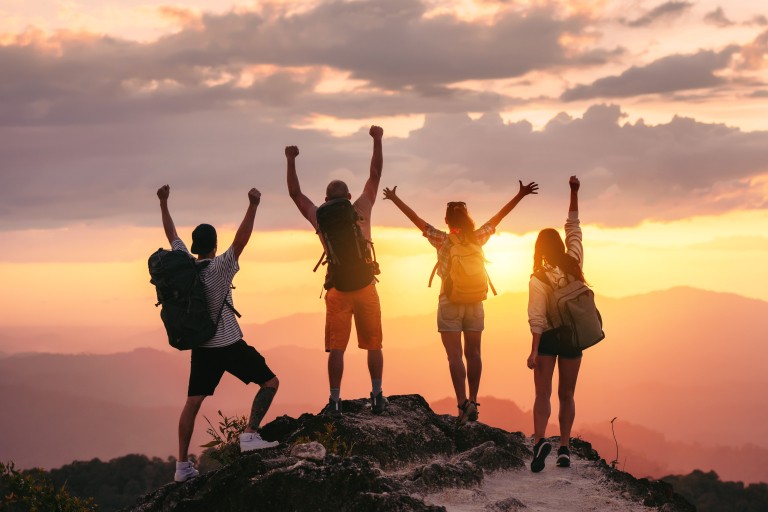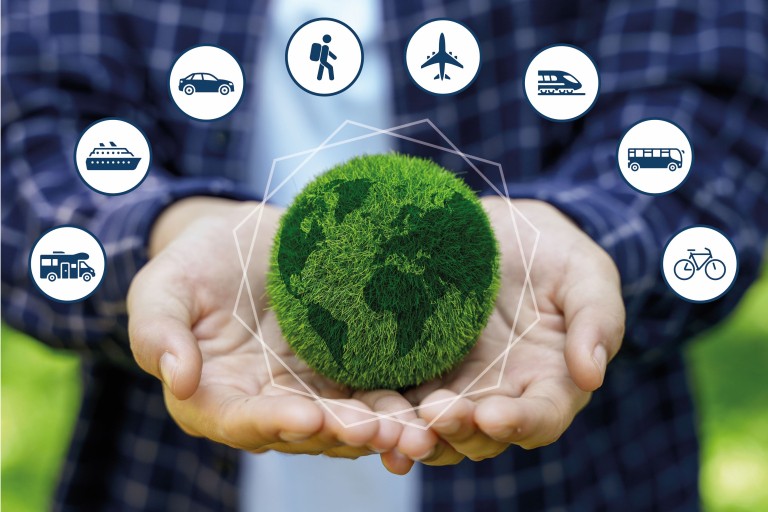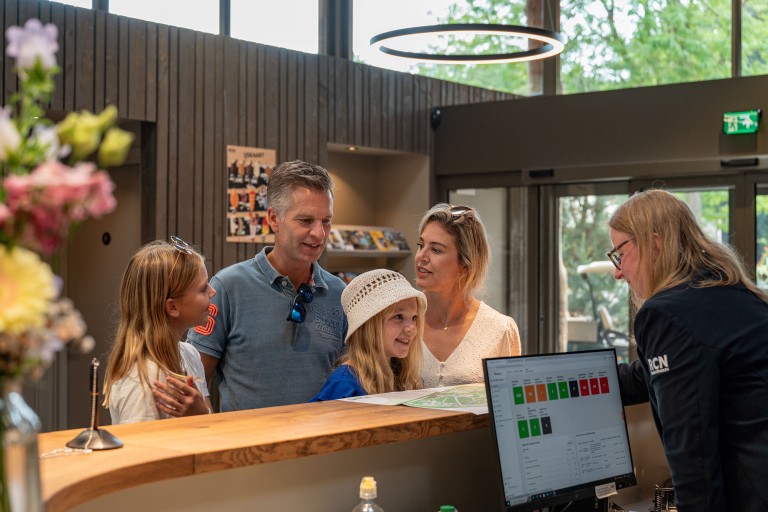Come and meet us
Walking around on campus is the best way to truly experience BUas. Sign up for one of the upcoming events or activities.
Study overview
Year 1 is made up of two semesters, spread over four nine-week blocks. Each block, you will work on a new project that introduces you to the dynamic field of tourism.
- Block 1: Travel Experience Design
In this block, you will learn how to turn travellers' expectations into unforgettable travel experiences. This begins online, where we trigger feelings of 'wanderlust' in holidaymakers looking for travel experiences. 'Wanderlust' stands for the desire to step out of one’s own world for a while and experience something different. It is the urge to travel. If you can turn that into a fantastic product that travellers will want to book, then you are exactly what the tourism industry is after.
An assignment within this theme may be creating a new, meaningful travel concept for a small travel business or a big one like TUI.Want to know more about this project? Read more about the wrap up of this block.
- Block 2: Destination Development
In this block, you take the step from visiting a destination to understanding a destination. In other words, during this project, you will do research at the destination itself, which we call fieldwork. You will discover the story behind the destination. And you will present your results in the form of a short film or documentary during the 'Untold Stories' film festival.
Curious? Have a look at an example of the presentation afternoon of block 2.
- Block 3: Travel Mobility
In this block, you will tackle the challenge of how we can travel - discovering the world and ourselves - while protecting the environment. You will explore the current landscape of tourism and travel and brainstorm ways to shake things up. Who and what do you need to consider? What trends and opportunities have the potential to reshape the way we travel – not only at the destination itself, but also the journey to get there? How do we make travel greener without losing the fun factor for everyone?
Curious about project examples? See how students explore the world of Travel Mobility.
- Block 4: Tourism Hospitality
You will look for new forms of hospitality in the context of tourism and leisure. We are all familiar with the idea of hospitality, but what exactly is it? What do tourists expect in this area today? Boundaries are blurring, with trends like ‘workation’, blending business and leisure. You will learn to experience the essence of hospitality in order to then use what you’ve learned to create ‘the holiday homes, safari tents or glamping lodges of tomorrow’.
In the first semester of year 2, you will work on two tourism projects. After that, you will have the opportunity to determine your own study route by choosing a challenge, an exchange or a placement.
A challenge is a form of education in which students, together with lecturers and professionals from the field, work on issues from the world around us. These are mostly real-world issues in society for which they develop solutions, aiming to improve the travel industry.
Available options:
Year 2:
- In semester 3: two tourism projects.
In semester 4: choice of tourism challenges or challenges in another BUas programme, exchange, minor, placement or specialisation.
Year 3
- In semester 5: choice of tourism challenges or challenges in another BUas programme, exchange, placement, placement or specialisation.
- In semester 6: tourism challenges or challenges in another BUas programme, exchange, placement, placement or specialisation.
Year 4
- In semester 7: choice of tourism challenges or challenges in another BUas programme, exchange, traineeship, minor or graduation project.
- In semester 8: choice of tourism challenges or challenges in another BUas programme, exchange, traineeship, minor or graduation project.
The basic rules are as follows:
- You will do a placement of at least one semester
- You can spend one semester doing an international exchange
- You can spend one semester doing a minor
- You will do one graduation project
- Placement
You will go on a placement of a minimum of twenty weeks. During your placement, you will gain practical experience, discover what suits you best and prepare yourself for a job in the tourism and recreation field. The programme has an extensive national and international network, offering a wide choice of placements, both at home and abroad. You can make use of this network or look for a suitable placement yourself. The student affairs team will support you in your search for a placement.
Do you think 20 weeks is not enough in terms of a placement? You can also choose to do several placements during your studies.
Here are a few placement examples:- Communication at Landal GreenParks
- Sun holidays at TUI
- Sustainability at Transavia
- Marketing & social media influencer at NBTC Holland Marketing
- EF International Language School in Madrid
- Marketing at Corinthia Hotels Malta
- Sales at Happy Gringo Travel in Ecuador
Read Rianne’s story to find out how everything she learned in her studies fell into place during her placement. And check out a day in the life of Jaleesa’s placement at EF International Language School in Sydney.
- Exchange
Studying abroad is the perfect opportunity to push your boundaries. You build up an international network, learn a new language, and gain insight into intercultural differences. BUas works with universities all over the world, so as an exchange student you have plenty of options.
- Minors
With a minor, you choose for yourself: do you want to specialise in your field or broaden your knowledge? You can take a minor at BUas, but you can also choose to do a minor at another Dutch university of applied sciences, or even abroad.
- Foreign languages
Would you like to spend a block or semester studying a foreign language such as French, German or Spanish? If so, the Languages & Culture minor is right up your street. This minor will immerse you in the country’s culture. You will enter at your own level and learn what you need to be effective and successful in this language.
- Attractions & Theme Parks Management
From the second year, you can choose to pursue the two-year Attractions & Theme Parks Management (ATPM) track. This is a specialisation offered to students from the Tourism Management, Facility Management, and Leisure & Events Management programmes.
Why this specialisation?
The number of attraction and theme parks is still growing and the competition is fierce. It’s not just theme parks that are constantly reinventing themselves; holiday resorts, zoos, shopping centres and museums - to name a few examples from your future field of work - also focus more and more on creating memorable experiences. In addition, there is still much to gain in terms of corporate social responsibility. In short, things can and must change to become more experiential and more sustainable.A new generation of managers
There is great demand for a new generation of managers capable of creating successful and meaningful concepts and experiences (concept design) from a business perspective (business design). In this specialisation, you will learn how to innovate products and services to create added value for both visitors and the company you work for.The challenge
There is no such thing as a one-size-fits-all business model in the world of attraction and theme parks. The challenge is to make the right combinations and come up with something that makes you stand out and builds goodwill. An example? Zoos are making a turn towards a more ethical and educational approach, whereas museums are adding a bit more experience and interaction. And theme parks try to immerse people in complete themed worlds. Digitalisation, AI and sustainability are playing an increasing role at all parks, and we also pay a lot of attention to these themes within BUas.What will you do?
You will dive into the world of marketing, finance, workforce planning and safety, because you need that knowledge. But you will also explore the fields of Hospitality, Imagineering and Storytelling. You will work on your creative leadership skills and learn about change management. Each course is linked to a real client from the world of attractions. During your studies, you can do a placement at ‘world parks’ such as Walt Disney World in Orlando, Europa-Park, and Efteling.More information can be found on the webpage of Attractions & Theme Parks Management.
- Social Innovation
Starting in your second year, you can dive into the three-year Social Innovation track. This is an ideal choice for anyone studying Tourism, Facility or Leisure & Events who is socially conscious and eager to make a meaningful contribution.
Social Innovation is all about coming up with solutions with people, not just for them. You will team up with fellow students in the Performatory on campus to brainstorm creative solutions to societal issues in areas like health, equality, human rights, and the environment.
Examples of project challenges include:
- Finding ways for tourism to benefit local communities
- Organising a dance party for people experiencing homelessness
- Designing future-ready workspaces
You will tackle real-world problems for all kinds of organisations, just think of sports events organisers, theatres, museums, festivals, and also healthcare institutions and governments. You will often work across different sectors, collaborating with new people while expanding both your network and experience.
Social Innovation at BUas boasts a vibrant community with diverse backgrounds and areas of expertise. A unique aspect of this track is that you get to shape your own learning journey.
You will choose your own topics and projects within a clear framework. Each year, you will engage in about eight hands-on projects, utilising design-thinking skills. What’s more, you will work in self-chosen teams, mixing with students from other years and programmes.
Here you can find more about the specialisation Social Innovation.
- Pre-master
In your final year of study, you may choose to attend the academic pre-master's track in Strategic Business Management and Marketing (SBM). This pre-master will give you direct access to Master of Science programmes at top universities such as Maastricht, Rotterdam, Tilburg, Antwerp (B), and Warwick (UK). You can also move on to our university master's degree in Leisure and Tourism Studies. This way, you can earn a university master's degree in just five years – or even in four years, through the accelerated (three-year) track.
During your four years of study, you will work on assignments for real companies. In year 1, you start with projects and from year 2 onwards, these become challenges within tourism themes or other BUas programmes. You will work on these projects and challenges in a learning community. A learning community is a small group of students, lecturers and industry professionals, where students learn by doing, exploring and discovering, and reflecting collaboratively. This way, you will develop skills that you can put to good use later in the business world. In addition, you will work on individual skills. You will also learn how things work in practice through company visits and fieldwork.
In a project, the process is structured and the end goal is fixed. In a challenge, there is less structure and you decide together with your group what the end goal will be. You often get to design the approach yourself.
An example of a project might be: how to create a meaningful experience for different target groups for an online travel company, focusing on travel behaviour, wants and needs, and then turning it into a product. You will work with your group to help the client and explore the possibilities together. Of course, this includes some theory and you will actually carry out your project.
In charge of your own education
Of course, things do not always go smoothly. Sometimes you get stuck and other times you come up with a brilliant idea. You can always turn to a team of lecturers on our programme who will guide you through your project or challenge, or to your fellow students with whom you work. All feedback, feed-up and feed-forward helps you grow. In other words, you are allowed to make mistakes. You will only learn from them! You will also learn a lot from working together in your group, just like in a real company. Another thing you will learn is taking control and ownership of your own education. With us, you determine the focus of your studies, and how and where you want to learn. This cultivates an independent and proactive work attitude, which is crucial for your future.
No classes
You read that right! We have no traditional ‘classroom classes’ and no hourly timetable. Monday (full day), Wednesday (full day) and Friday (morning) are fixed school days where you work with your group on a project or challenge on campus. Apart from that, you will also talk to your lecturers and listen to presentations by fellow students on these three fixed days. On the other days, you will meet with your group or work individually on a study component. If you have any questions, you can contact specialist lecturers. Topics such as tourism knowledge, research skills, business economics and marketing are reflected in the projects or challenges.
The study load amounts to an average of 40 hours per week per year. How many hours students actually spend on their studies differs from person to person and from week to week. You will have 2.5 class days on campus. These are fixed days that remain the same throughout the year. On the other days, you will work on projects on campus or at home.
- Personal development
The Lumina Spark method will help you discover who you are and what you have to offer. You will gain insight into your personal preferences, your behaviour and how you react in different situations. You will learn to look at yourself and others from different perspectives.
Self-awareness is the basis for many personal and professional skills that you can use in your future personal and working life, such as reflection, effective collaboration, giving feedback, and dealing with stressful situations. By understanding yourself and others better, you take a big step towards success.
- A typical week
A typical week in year 1 of the Tourism Management programme in academic year 2024-2025 will look like this for you: Monday (full day), Wednesday (full day) and Friday (morning) you will work on a project at school in your learning community. During these days, you will follow a fixed and structured schedule of supervised work on your project. During these days, your attendance at school is compulsory. On the other days of the week you will work independently or with your group on individual and group assignments. You will decide for yourself, or in consultation with your group, whether you do this at school or from home. In short, on these days too, you will be actively involved in your education.
Daily structure on Monday (full day) – Wednesday (full day) – Friday (morning):
- 10.00 to 12.30 hrs: supervised work on your project
- 13.00 to 16.00 hrs: supervised work on your project
During the projects, you will work together intensively with various lecturers and students. You will receive instructions from your lecturers and be inspired by mini-lectures that will give you the right guidance to do your project well.
Please note: This description gives a general idea of a typical week of first-year students in the 2024-2025 academic year. No rights can be derived from it. The final study timetable may vary depending on specific circumstances and organisational changes.
Student well-being
BUas encourages and helps you to make the most of yourself, whatever your circumstances. Maybe you have a chronic illness, are a family carer, a competitive athlete, or juggle your studies with running your own business? Our study coaches, student counsellors and student psychologists are here to help. Do you need extra support or advice? Or extra facilities? Then take a look at the options here.
From semester 4 in year 2, you can specialise further in the themes you were introduced to in year 1. You choose the theme you want to specialise in by working out challenges. This may be a challenge that lasts one block, but you can also choose to specialise in one theme for the rest of your studies. There are four main specialisation themes:
- Travel Mobility. Exploring and developing responsible ways of travelling. An example of a challenge is the question: How can you motivate the adventurous traveller to travel by train instead of by plane? What solutions can you come up with - for example, for Eurail - to make rail travel within Europe easier?
- Tourism Hospitality. Exploring and combining new forms of hospitality in tourism. How can you lift hospitality to a higher level and blend it seamlessly into products like cruises, holiday resorts and day trip destinations?
Within this theme, you can also opt for Attractions & Theme Parks Management, an English-taught track together with International Facility Management and Leisure & Events Management. You have the option to participate in this track for either one semester or commit to a two-year programme and graduate in it. - Destination Development. Designing attractive tourism destinations for both visitors and residents.
In this theme, you will ‘Rethink Tourism’ during fieldwork. Your task will be to create sustainable solutions for local tourism businesses that have a positive impact on the destination. - Travel Experience Design. Transforming travellers’ expectations into unforgettable experiences.
Using ‘Design Thinking’, you will solve complex problems for various travel companies, learn to create experience prototypes and do experiments and tests with these. Our Newways training company also falls under this theme. You can opt for a 20-week placement here from year 3. You can also opt for a 40-week placement in your graduation year. At our training company, you will organise a wide variety of trips and events, both business and leisure events.
At BUas, study trips are called fieldwork. This means working in practice; not only seeing destinations and organisations from your classroom chair, but actually experiencing them on location, while demonstrating the competencies you have learned at the same time. On-site learning and internationalisation are important, if not indispensable as part of your Tourism Management studies and super valuable for your own personal development and creativity.
In year 1, you travel to Belgium, for example to Bruges or Antwerp. In year 2, you travel within or outside Europe. Last year, year 2 fieldwork took place in Ghent, Lisbon and Bali, but the destination may vary every year.
In addition, during your studies, you can visit the Holiday Fair (Vakantiebeurs) in Utrecht and the international tourism fairs in London (WTM) or Berlin (ITB).
Why fieldwork, company visits and tourism fairs?
- Learning in practice makes learning more personal and meaningful by helping you connect learning to your own life.
- It stimulates your creativity by making you think about unique solutions to problems, ensuring a richer learning experience.
- You also get the chance to reflect on your actions and their consequences, which helps you better understand and apply the concepts you have learned in different situations such as your placement or future job.
- In addition, you will learn that making mistakes is an important part of the learning process and nothing to be afraid of.
- Practical experience speeds up the learning process, because it strengthens the connections in your brain, which makes for faster and more effective learning.
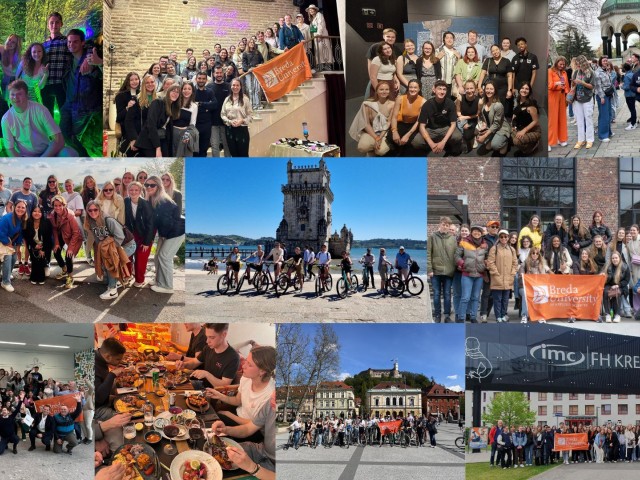
You will benefit from the intensive three-year programme in two respects: you gain one year in time, and save one year of tuition fees.
- after vwo (pre-university education) or after another propaedeutic year in another degree programme (economic focus): you will start in year 1 and skip two semesters from the second semester of year 2.
- for Dutch students only: tailor-made track for havo graduates: you will start your course of study at De Rooi Pannen (mbo level) and you will proceed at Breda University of Applied Sciences in year 2 of the regular four-year programme.
- Three-year programme after pre-university education or after propaedeutic year
If you have a vwo diploma and meet the programme requirements, you can do the Tourism Management programme in three years (accelerated track). This is also possible with an hbo or wo propaedeutic certificate in an economic discipline. Send an e-mail to [email protected] for more information.
With the accelerated route, you start in year 1. After the first semester of year 2, you skip two semesters. Because you can choose the structure of your programme yourself, you then have the freedom to organise the remaining three semesters as you wish. The accelerated track also includes a work placement of at least 20 weeks (one semester).
With this background, you will also qualify for our three-year academic programme Bachelor of Science Tourism.
- Mhbo track for havo pupils
Are you almost finished with ‘havo’ but in doubt about a direct transfer to ‘hbo’? Then we have a solution for you: an mhbo track. Together with De Rooi Pannen, BUas offers a programme that allows you to obtain an ‘mbo’ diploma (level 4) and an ‘hbo’ diploma in your field of interest in five years!
If you are thinking of further education in tourism, media or the events industry, you may want to consider this option: mhbo Tourism | Leisure | Creative Business
You take this fast-track level 4 programme at De Rooi Pannen in Tilburg or Breda. After two years, you will obtain your ‘mbo’ diploma and have a choice of three ‘hbo’ programmes at BUas. Here you will enter in the second year:
- hbo (professional) bachelor Creative Business
- hbo (professional) bachelor Leisure & Events Management
- hbo (professional) bachelor Tourism Management
In other words, you have a little more time to discover your talent: you don’t have to choose your ‘hbo’ programme until after two years.
At BUas, you develop your entrepreneurial skills in all programmes. You can also join BUas Startup Support (BUSS), where you attend networking meetings and receive guidance from a startup coach.
Would you like to graduate with your own company? You can do that at any academy, although a selection procedure may apply. Whether you are already generating revenue or just have an initial idea, BUas Startup Support will help you.
Read more about starting your own business.
What makes this study programme unique
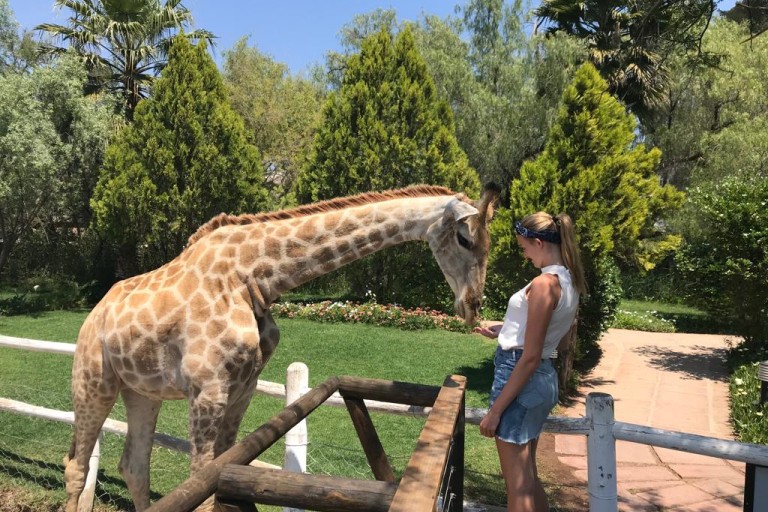
Go abroad
You don’t learn this profession in the lecture hall alone. So, you will get out and step into the practical world abroad to get to know other cultures.
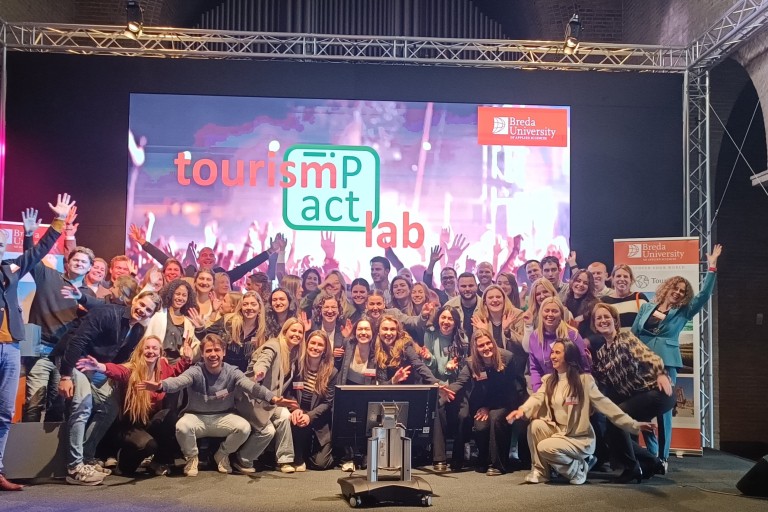
Tourism Impact Lab
Together with researchers and professionals from the industry, BUas students develop their Storytelling & Experiences talent.
Admission & application
What are the admission requirements?
To be admitted to this degree programme, you need a havo or vwo diploma or an equivalent of these Dutch diplomas. You can also be admitted with an equivalent of level-4 mbo diploma.
- Check out the complete admission requirements and the possibilities if you do not meet the requirements
- Additional requirements have been set for the 3-year track.
Information about admission requirements
What does this study programme cost?
In the academic year 2025-2026 the statutory tuition fee for bachelor's programmes is €2,601. In addition, you should take extra costs for software, excursions, etc. into account.
How can I apply?
If you meet the admission requirements, you can apply for this study programme. If you do so before 1 May, you can certainly start your studies.
What others say about Tourism Management
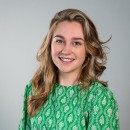
I studied in Mexico
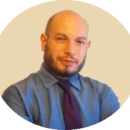
I love the international vibe
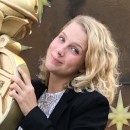
It’s a cool job, which I owe to my work placement
What can you do after your studies?
Tourism is a ‘people’s business’. It’s all about people, hospitality and experiences. But also about business skills, creativity and organisational talent. You can pursue a career as advisor, manager, marketer or purchaser in the tourism industry.
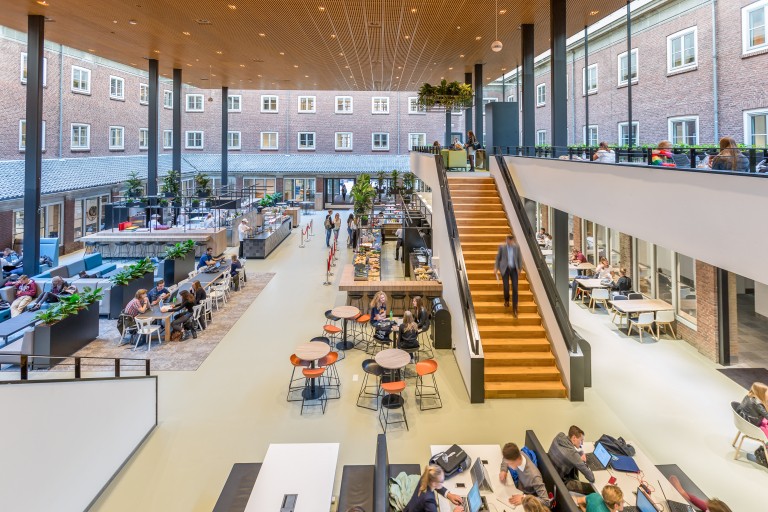
Virtual campus tour
Have a virtual look and discover the Horizon building where you’ll be studying and what more the campus has to offer.
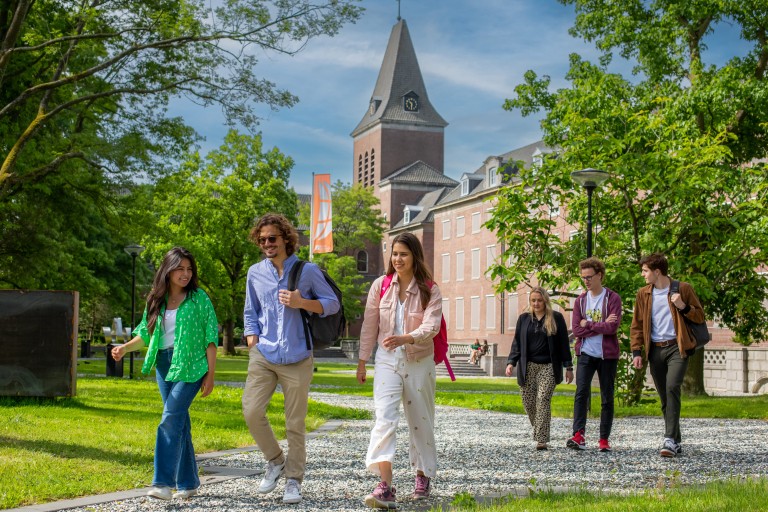
Studying at BUas
What is it like studying at BUas? What does the campus look like and what activities can be undertaken? Is Breda actually a vibrant university town?
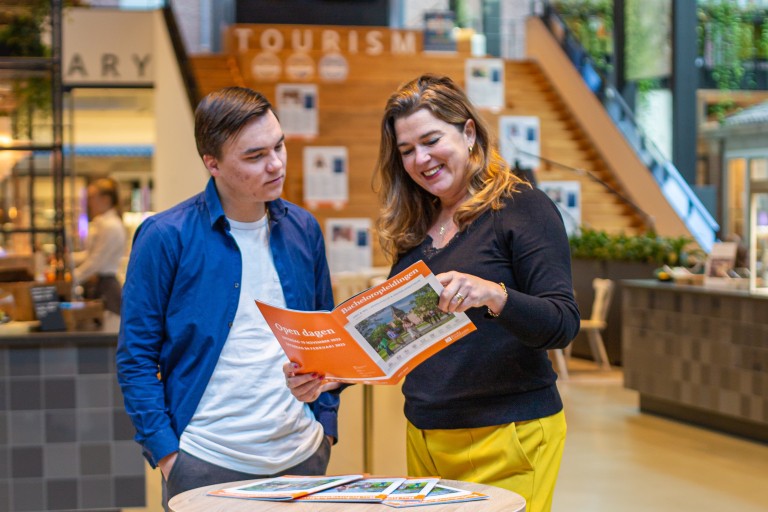
Assistance in choosing your study programme
Do you already know exactly what you want to study or do you not have any clue at all? Find out, compare and choose your professional/ academic bachelor’s or master’s programme at BUas.

